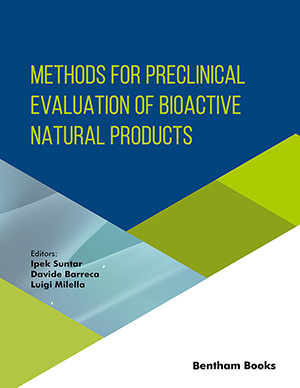Abstract
Thymoquinone (TQ) is one of the leading phytochemicals, which is abundantly found in Nigella sativa L. seeds. TQ exhibited various biological effects such as antioxidant, anti-inflammatory, antimicrobial, and anti-tumoral in several pre-clinical studies. Parkinson's disease (PD) is a long-term neurodegenerative disease with movement difficulties, and the common feature of neurodegeneration in PD patients is caused by dopaminergic neural damage in the substantia nigra pars compacta. The neuroprotective activity of TQ has been studied in various neurological disorders. TQ-mediated neuroprotection against PD is yet to be reported in a single frame; therefore, this review is intended to narrate the potentiality of TQ in the therapy of PD. TQ has been shown to protect against neurotoxins via amelioration of neuroinflammation, oxidative stress, and apoptosis, thereby protecting neurodegeneration in PD models. TQ could be an emerging therapeutic intervention in PD management, but mechanistic studies remain to be investigated to clarify its neuroprotective role.
Keywords: TQ, neuroprotection, neurotoxicity, neurodegeneration, dopaminergic neurons, PD.
Current Molecular Pharmacology
Title:The Mechanistic Role of Thymoquinone in Parkinson's Disease: Focus on Neuroprotection in Pre-Clinical Studies
Volume: 14
Author(s): Mohammad Najim Uddin, Mohammad I. Hoq, Israt Jahan, Shafayet A. Siddiqui, Chayan D. Clinton, Mohammed Ibrahim, Mohammad S. Islam and Mohammad Jakaria*
Affiliation:
- Melbourne Dementia Research Centre, The Florey Institute of Neuroscience and Mental Health, The University of Melbourne, Parkville, VIC3052,Australia
Keywords: TQ, neuroprotection, neurotoxicity, neurodegeneration, dopaminergic neurons, PD.
Abstract: Thymoquinone (TQ) is one of the leading phytochemicals, which is abundantly found in Nigella sativa L. seeds. TQ exhibited various biological effects such as antioxidant, anti-inflammatory, antimicrobial, and anti-tumoral in several pre-clinical studies. Parkinson's disease (PD) is a long-term neurodegenerative disease with movement difficulties, and the common feature of neurodegeneration in PD patients is caused by dopaminergic neural damage in the substantia nigra pars compacta. The neuroprotective activity of TQ has been studied in various neurological disorders. TQ-mediated neuroprotection against PD is yet to be reported in a single frame; therefore, this review is intended to narrate the potentiality of TQ in the therapy of PD. TQ has been shown to protect against neurotoxins via amelioration of neuroinflammation, oxidative stress, and apoptosis, thereby protecting neurodegeneration in PD models. TQ could be an emerging therapeutic intervention in PD management, but mechanistic studies remain to be investigated to clarify its neuroprotective role.
Export Options
About this article
Cite this article as:
Uddin Najim Mohammad , Hoq I. Mohammad , Jahan Israt, Siddiqui A. Shafayet , Clinton D. Chayan , Ibrahim Mohammed, Islam S. Mohammad and Jakaria Mohammad*, The Mechanistic Role of Thymoquinone in Parkinson's Disease: Focus on Neuroprotection in Pre-Clinical Studies, Current Molecular Pharmacology 2021; 14 (6) . https://dx.doi.org/10.2174/1874467214666210105140944
| DOI https://dx.doi.org/10.2174/1874467214666210105140944 |
Print ISSN 1874-4672 |
| Publisher Name Bentham Science Publisher |
Online ISSN 1874-4702 |
Call for Papers in Thematic Issues
Common mechanisms underpinning neurodevelopmental disorders and psychiatric diseases
A growing number of large-scale epidemiologic studies has strongly suggested that common mechanisms may be shared by aberrant brain development and psychiatric disorders. There is now an appreciation of synergic roles of genetic variants and environmental stress which profoundly affect the genome integrity and reshape brain development. This can lead ...read more
 18
18
- Author Guidelines
- Graphical Abstracts
- Fabricating and Stating False Information
- Research Misconduct
- Post Publication Discussions and Corrections
- Publishing Ethics and Rectitude
- Increase Visibility of Your Article
- Archiving Policies
- Peer Review Workflow
- Order Your Article Before Print
- Promote Your Article
- Manuscript Transfer Facility
- Editorial Policies
- Allegations from Whistleblowers
- Announcements
Related Articles
-
Immune-non Immune Networks in Intestinal Inflammation
Current Drug Targets Recent Advances in the Imaging of Programmed Cell Death
Current Pharmaceutical Design The Role of Inflammation in Epicardial Adipose Tissue in Heart Diseases
Current Pharmaceutical Design Role of Nanomedicines in Delivery of Anti-Acetylcholinesterase Compounds to the Brain in Alzheimer’s Disease
CNS & Neurological Disorders - Drug Targets Administration of Ethanolic Extract of Ocimum Basilicum Leaves Attenuates Depression like Behavior in the Rats Sensitized by Ovalbumin
Current Nutrition & Food Science Alternative Polyadenylation and Its Impact on Cellular Processes
MicroRNA Synthesis and Biological Evaluation of a Series of 4-(arylamido/imidoalkyl)- 5-(arylideno- 4-oxo-2-thio-imidazolidinyl)-N-(methyl-phenyl-imino) Acridinium Iodides as Potential Antiviral Agents
Letters in Drug Design & Discovery Many Drugs and Phytochemicals Can Be Activated to Biological Reactive Intermediates
Current Drug Metabolism Clinical Studies with Sirolimus, Zotarolimus, Everolimus and Biolimus A9 Drug- Eluting Stent Systems
Current Pharmaceutical Design The Role of ABC Transporters in Drug Resistance, Metabolism and Toxicity
Current Drug Delivery The Urokinase Plasminogen Activator System: A Target for Anti-Cancer Therapy
Current Cancer Drug Targets Oncogenic Signaling Pathways Activated by RON Receptor Tyrosine Kinase
Current Cancer Drug Targets Heparan Sulphate Proteoglycans and Viral Vectors : Ally or Foe?
Current Gene Therapy Diagnostic Value of Assessment of Serum Cortisol, Hepcidin and Thyroid Hormones Levels in Neonates with Late-Onset Sepsis
Infectious Disorders - Drug Targets The Effects of Combined Omega-3 Fatty Acids and Valproic Acid Supplementation on Symptoms of Borderline Personality Disorder: A Pilot Study
Current Psychopharmacology Role of Carbon Monoxide in Vascular Diseases
Current Pharmaceutical Biotechnology Resistance to Aspirin and Thienopyridines in Diabetes Mellitus and Metabolic Syndrome
Current Vascular Pharmacology Molecular Rationales for Signal Transduction Therapy and Chemoprevention of BRCA1-Related Breast and Ovarian Tumours
Current Signal Transduction Therapy Computational Protein Design: A Novel Path to Future Protein Drugs
Current Pharmaceutical Design Vascular Patency: A Biomarker and Clinical Target Quantified with High Resolution MRI and Novel Cellular Pathways
Current Neurovascular Research



























